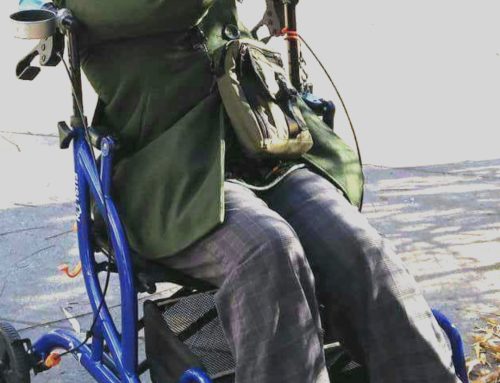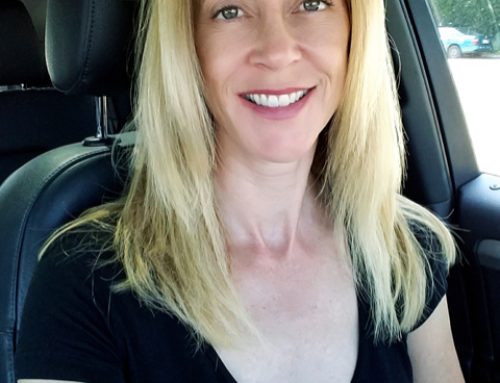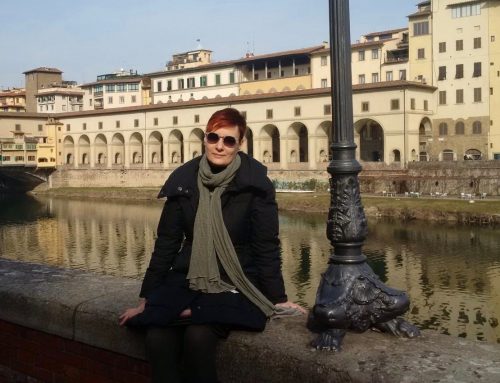“Your Ammaji is coming tonight,” said Mom. “Your grandmother.” She’d been counting down the days for me.
I was excited because I’d learned all about grandmothers in school. We were doing a unit on family trees. I had a green, construction paper tree—the trunk split into two branches, and then each branch split into two more. Eight branches. In the middle, where everything came together, was me. I was happy there was no room for my brother Amit on this tree. It was mine and mine alone.
We were supposed to put pictures of ourselves and then our parents and our grandparents on the tree, but that part was hard because I didn’t have any pictures of my grandparents. Mom and Dad had some black-and-white ones in the photo album, but they didn’t let me take them to school. I had to leave that part blank, and hope that I didn’t get in trouble for not finishing my homework. They were small pictures, with my grandmother and grandfather sitting stiffly beside each other, wearing Indian clothes. Other kids had colour pictures of grandmothers smiling with teeth showing, grandfathers wearing knitted sweaters.
We’d sat in a circle and talked about grandmothers and grandfathers. We went around the circle and everyone gave their name for their grandmother.
“Nanny.”
“Gran.”
“Bubbie.”
“Nonna.”
“Oma.”
When the teacher came to me, I didn’t have an answer. Everyone stared at me.
“You don’t know your grandmother’s name?” said Sharon.
I shook my head, enjoying the feel of my hair sliding over the back of my neck.
“I’ve never met my grandmother.”
“Neither of them?”
She was looking at me like I was weird. I knew, because people always looked at me like I was weird. Like on the first day of school when the teacher tried three times to say my name. She made me say it, and then she would repeat it asking me if it was right.
After a while I nodded even though it was wrong. She said it “Pay-yal,” so everyone called me that too. I asked Mom why she didn’t give me a normal name like Jennifer, and she told me Payal was a beautiful name. I didn’t believe her. No Jennifer had to say their name out loud in front of the whole class.
No Jennifer didn’t know the name of their grandmother.
But now she was coming, so I could answer the question right.
Mom was cooking a lot. Mom always cooked a lot, but after dinner she was still cooking. “Ammaji might be hungry when she gets here.”
“Is she bringing me a present?” Lots of kids in my class had grandmothers visit and bring presents, with more on Christmas and birthdays. Kids who saw their grandmothers every week for dinner didn’t get presents, so visiting grandmothers seemed better.
Mom cuffed me on top of my head.
“Ow!”
“Your Ammaji is coming all the way from India to see you, and all you ask about are presents?”
I’d gotten this wrong too. Wrong at home and wrong at school.
Mom let me stay up late to wait for Ammaji because it was a Friday and there was no school tomorrow, but I fell asleep anyway. I dreamed of my grandmother. She floated down on a puffy cloud, like the snow-white puff of hair curled around her head. She wore pink lipstick and a fuzzy pink sweater, and she smelled like chocolate chip cookies. “I love you, Sweet Pea,” she said, and handed me a big, red box with a silver bow. When I opened it, a puppy jumped out and licked my face.
Voices from downstairs woke me up. One was Mom’s. The other was sharp, and sounded like it was coming out of someone’s nose. They were speaking in Gujarati, so I didn’t understand.
I crept halfway down the stairs in my pink pyjamas and sat. Mom was in the kitchen with a woman in a white cotton sari. I’d never seen such a plain sari. Mom wore saris—shiny and bright coloured, covered in gold and silver threads—when we were dressing up in Indian clothes to go to parties, taking them from the high shelves in her closets. This one could have been bed sheets. Old bed sheets. I could see her from the back, her hair in a long, thin grey braid. I felt my own hair. It was tangled, and I’d never worn it in a braid. I couldn’t braid it myself, and Mom said it took too long to do it for me. The woman was barefoot, and I could tell from the hand gestures that Mom was trying to convince her to sit down.
I edged down one more step, but Mom saw me. She waved me over. “Payal. Come.”
The woman in the white sari turned around. She was old and wrinkled and her face caved in at the cheeks. I shook my head. The woman said something sharply to Mom, and Mom repeated herself in a louder voice. I uncurled my legs and came down the steps one at a time.
“This is your Ammaji,” said Mom, leading me to her. “Pug elow. Touch her feet.”
I looked up at Mom. “I know what it means.”
“So do it,” she said, pushing me.
I bent down and touched the woman’s feet. They were dry and wrinkled, and her toenails were yellow. I stood up and folded my hands. Mom breathed out like she was relaxing, and Ammaji put a hand on my head and smoothed down my hair as she spoke in Gujarati.
“She’s saying you are very big,” said Mom. They spoke to each other for a moment, and then Ammaji looked at me and spoke. Her voice went up at the end, so I knew she was asking a question. She said it again slowly. She had a big diamond in her nose. Mom had a small diamond in hers too. I rubbed my nose—all skin, no stones.
Mom translated. “She wants to know when you will come to India.”
I shrugged my shoulders. I didn’t know what to say, so I looked at my feet. They were small compared to the brown kitchen tiles. My whole foot fit inside one tile.
They spoke a little more, and then Mom sat me down for breakfast. “Your Ammaji has brought laddoo from India for you.”
We had to go all the way to Gerrard Street for laddoo, deep orange balls of sweet. I never got to eat it for breakfast.
Ammaji brought a small cardboard box edged with purple diagonal stripes. She lifted the lid off, and a sweet spiced smell came out. Inside were small brown balls.
“Take one,” said Mom.
I looked up at her. “They’re supposed to be orange.”
“Those are orange laddoo. These are brown laddoo.”
Still, I didn’t take one. “What if I don’t like it?” I wasn’t allowed to not finish my food. Mom said if I didn’t finish my food, it was going in my hair. Whenever we were at an Indian party, all the aunties and uncles would say so too. They weren’t really my aunties and uncles, not like Sharon’s aunties and uncles, but that’s what I called them anyway. It was easier than remembering all their names.
Mom took one out of the box and put it on the plate in front of me. “Just try it. Ammaji made these for you.” Her voice was coming out louder and faster, and she was moving her eyes towards Ammaji.
I picked it up and looked at Ammaji, who was looking at me. She didn’t seem mad at all, not like Mom. Her eyes met mine steadily, and then she smiled. Still looking at her, I took a bite. It was sweet, but not as sweet as orange laddoo. It was cold but tasted warm like gur, and something in it was a little bit hot—taste hot, not temperature hot—but still not too hot like when Mom gives me Indian food full of big pieces of ginger. It was good. I chewed and took another bite, a big one this time. And then another, and it was gone. Mom sighed a little bit.
Ammaji smiled again and put another brown laddoo on my plate. She spoke softly to me in Gujarati, saying my name but nothing else I understood, and stroked my tangled hair.
All day Saturday I followed Ammaji like a shadow, but she stayed around the house, in the kitchen and in the living room. I showed her my room and all my toys and my favourite Barbie dolls. She helped me braid their long, blonde hair and tie the ends with bits of yarn. I didn’t mind that we had to eat Indian food for every meal, but I still asked Mom if we could have pizza instead; she got mad for a second, and then told me that I loved Indian food as she looked at Ammaji. I also loved pizza and maybe Ammaji would too.
Ammaji sang songs in Gujarati to me, and I didn’t understand them except for the words “Ek, Beh, Thron” which meant “One, Two, Three.” I taught her the same words in English, repeating them over and over again until she got it. Maybe if I repeated every word I knew with her enough, she would be able to talk to me.
I was allowed to stay up late but fell asleep leaning against Ammaji, the sandalwood smell of her white cotton saris in my nose. When Sunday night rolled around Mom said I had to sleep in my own bed.
I woke up early on Monday, and Mom helped me get dressed for school in my pink corduroy pants and pink-and-green sweater.
“Do I have to go to school?” I always asked. Mom never answered.
Ammaji asked questions which Mom translated for me. “She wants to know where your school uniform is. When we were little, we had to wear a uniform to school every day. And our hair had to be in two plaits.”
“Plaits?”
Mom searched for the word on the ceiling. “Braids.”
I was sitting on the floor, cross-legged, waiting for Mom to come and brush my hair before school. I was nervous because my hair was always tangled and Mom always pulled hard and I always cried and then Mom always yelled at me for crying. Ammaji was sitting on the floor cross-legged behind me. She said something to Mom who left and came back with a white jar with green letters on it. She gave it to Ammaji who opened it up and let me smell it. Coconut.
“Do you know what this is?” said Mom. I shook my head. “Coconut oil.”
“It doesn’t look like oil.”
“It’s for your hair. Your Ammaji puts coconut oil in her hair every night. And when we were little, she would massage it into our heads and plait our hair for school.”
Ammaji scraped a soft white lump out of the jar, and rubbed her hands together fast. She pulled them apart, and the white was gone and her hands were oily. She put them on my head and gently began to rub. Her hands felt soft and warm and strong; my head felt pillowed, like in that moment before you fall asleep, snuggled down under soft .
“It’s good for your hair,” said Mom. “Keeps your head cool and your hair soft.”
Ammaji ran her fingers through my hair without catching anything. No tangles! I put my hands through my own hair, feeling it slide against the webs between my fingers. I smelled the coconut on my fingers. Ammaji took the hairbrush and ran it through my hair. “It doesn’t hurt at all!”
“Thank God,” said Mom.
Ammaji parted my hair in the middle and pulled it into two braids, finishing them with elastic bands. I swung my head back and forth, feeling the two small ropes of hair hitting my shoulders.
Amit walked with me to school, Ammaji waving to us as we left. Once we got to the school yard, he ran off to join the big kids. They waved and shouted his name when he arrived, but nobody ever looked for me. I stayed by the edge of the playground until the bell rang. The other kids didn’t say anything about my braids when we lined up to go in, or when we first sat down at our desks; but as the day went on, they were looking at me and whispering.
Sharon told me why during recess. “Everyone wants to know why your hair is greasy. Don’t you wash it?”
“I wash my hair!” My eyes stung a little bit.
“But why is it dirty?”
“It’s not dirty. There’s coconut oil in it.”
She looked at me, puzzled. “Why would you put oil in your hair?”
My head was getting warm. “It’s something Indian people do.” She kept staring at me. “My grandmother did it.”
She wrinkled her nose. “You shouldn’t go around with dirty hair. You’ll get bugs. Then I won’t be allowed to play with you.” She walked away from me. I didn’t dare join the other girls in the playground.
All day, everyone looked at me. I couldn’t hide my head, and when Amit came to walk me home I ran ahead of him the whole way. Mom had barely opened the door before I screamed at her. “Why did you make me go to school with oil in my hair?”
She looked to Amit for explanations, but he had none. I cried and shouted, words coming out in pieces. Ammaji stepped forward and tried to grab hold of my hands, but I kept shouting. “I don’t like you! Let me go!”
Mom cuffed me on top of my head. “How can you say that? Respect your elders.”
I looked at Ammaji for help. She didn’t say or do anything except try to hold me, but I pulled away and ran upstairs to my room.
No one understood anything I said. I could hear them talking in Gujarati downstairs, and I couldn’t understand them either. Still crying, I picked up my Barbies and undid their braids. Their blonde hair fell loose and untangled, silkier and prettier than mine would ever be.
November 2017

 Sonal Champsee’s short fiction and essays have been published by magazines such as The New Quarterly, Ricepaper, and Literary Mama. She was a finalist for the Writer’s Union of Canada’s 2017 Emerging Writers Short Prose contest, and has had a play produced in Seattle. Sonal holds an MFA in Creative Writing from UBC, and has studied writers such as with Gail Anderson-Dargatz, Sarah Selecky, Zsuzsi Gartner and Jessica Westhead. Sonal lives in Toronto, and is a creative writing instructor for Sarah Selecky.
Sonal Champsee’s short fiction and essays have been published by magazines such as The New Quarterly, Ricepaper, and Literary Mama. She was a finalist for the Writer’s Union of Canada’s 2017 Emerging Writers Short Prose contest, and has had a play produced in Seattle. Sonal holds an MFA in Creative Writing from UBC, and has studied writers such as with Gail Anderson-Dargatz, Sarah Selecky, Zsuzsi Gartner and Jessica Westhead. Sonal lives in Toronto, and is a creative writing instructor for Sarah Selecky.




